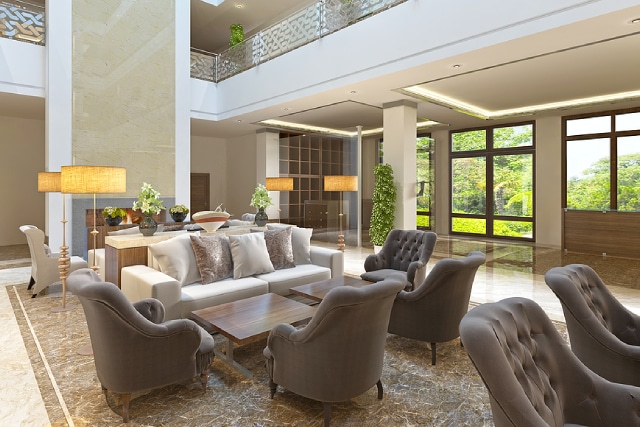
Feng Shui, an ancient Chinese practice, involves the art of arranging the physical environment in a way that enhances the flow of positive energy, or “Qi”. Over the centuries, it has evolved from a mystical practice to a practical tool used in various industries, including hospitality. In this article, we will explore how hotels and hospitality businesses in Singapore and beyond are using Feng Shui to attract guests, improve customer experiences, and boost their bottom line.
Understanding Feng Shui for Business
In the competitive world of hospitality, every detail matters. From the hotel’s design to the atmosphere in its rooms, everything contributes to a guest’s experience. One of the key elements that can elevate this experience is the application of Feng Shui principles. Business Feng Shui in Singapore is especially crucial due to the cultural emphasis placed on harmony and balance, both of which are fundamental to this practice.
In hotels, Feng Shui isn’t just about decoration but extends to the entire layout of the building. The lobby, the flow of corridors, room arrangements, and even the placement of the reception desk are strategically designed to ensure a continuous flow of positive energy. By understanding how energy interacts with the environment, hoteliers can create spaces that feel welcoming, prosperous, and balanced.
Feng Shui for Hotel Design
The layout and structure of a hotel are vital when applying Feng Shui. For example, a well-placed entrance plays a crucial role in setting the tone of the hotel. In Feng Shui, the entrance is considered the “mouth of Qi,” as it’s the point through which energy enters the building. Hotels with properly placed entrances will allow for the smooth flow of Qi, inviting positive energy into the space. A door that faces a busy road or is blocked by obstacles can hinder this flow and lead to negative energy. A Feng Shui consultation can provide insights on how to optimise a hotel’s exterior and interior layout.
Moreover, hotels are often designed with Feng Shui principles in mind to ensure a harmonious and restful experience for their guests.
Room Arrangements and Guest Comfort
When it comes to the hospitality industry, guest rooms are critical. These spaces must feel calm and peaceful to allow guests to relax and unwind. The placement of furniture, the use of colours, and the lighting are all considered to ensure that energy flows freely within the room. For example, beds are traditionally placed in a way that the guest can see the door while resting, symbolising a sense of safety and control.
The use of calming colours, natural materials, and proper lighting helps to promote relaxation and a sense of well-being. Avoiding harsh or overly bright lighting and making sure that there is a good balance of natural and artificial lighting is essential. Additionally, creating a balanced environment within each room enhances the overall guest experience and, by extension, the reputation of the hotel.
Creating a Harmonious Hotel Lobby
The hotel lobby is the first impression for any guest, and its design plays a significant role in setting the tone for the rest of the experience. In Feng Shui, the lobby is designed to attract good fortune, prosperity, and success. The placement of artwork, plants, fountains, and even the colours used in the décor are carefully chosen to ensure the free-flow of positive energy.
Hotels may also use Feng Shui principles to create a space that encourages social interaction and relaxation. For example, seating arrangements in the lobby are designed to encourage a sense of comfort, while large open spaces are maintained to avoid stagnant energy. The use of natural elements like wood and Feng Shui plants also helps to balance the energy of the space.
Conclusion
Feng Shui has proven itself to be a valuable tool for hotels and hospitality businesses in Singapore, offering a path to creating more harmonious environments for guests and employees alike. By applying principles of Feng Shui to hotel design and room arrangements, hospitality businesses can enhance their reputation, improve customer satisfaction, and drive success. Whether you’re in the early stages of integrating Feng Shui or looking to optimise your existing space, consulting an expert can be an essential step toward achieving a balanced and prosperous business.
For more information on how Feng Shui can enhance your business, consider reaching out to Kevin Foong Consulting Group for professional advice and guidance.
Contact us today for more information.

